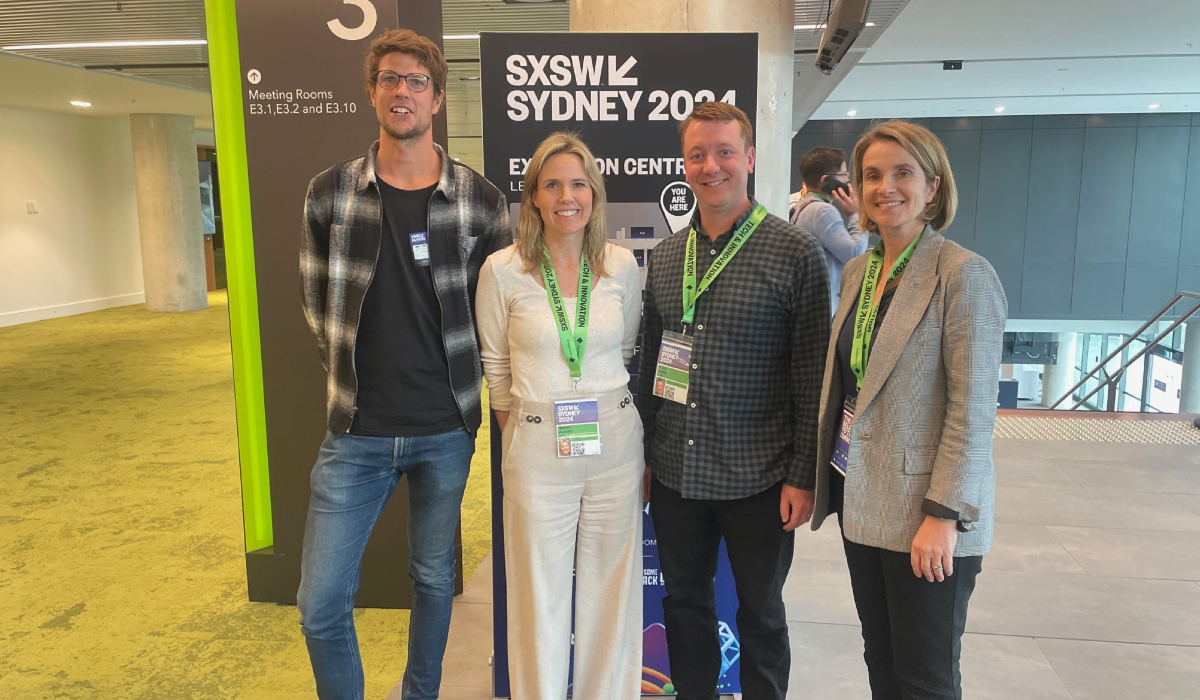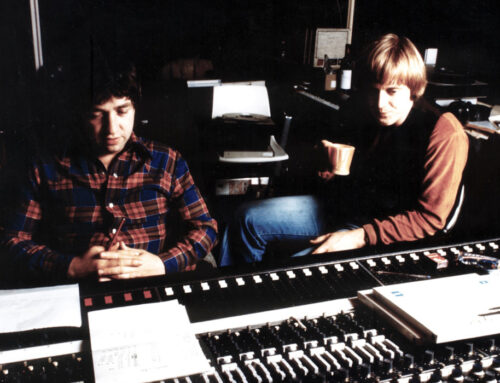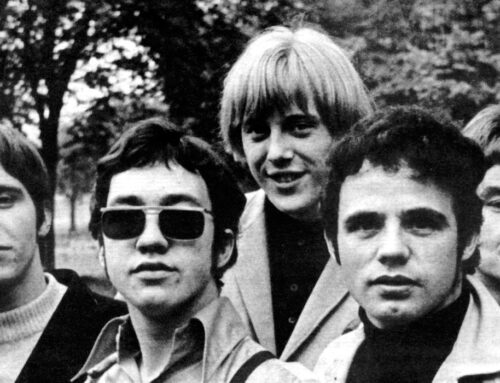The audience heard from Uluu, a Perth-based startup co-founded by Michael Kingsbury and Dr. Julia Reisser, that is developing alternatives to the 400 million tonnes of plastic produced annually. Backed by Alberts Impact Ventures since 2021, their carbon-negative plastic replacement made from seaweed addresses both global warming and plastic waste.
“Our superpower is that these products behave like plastic,” explains Michael. “A key [impact] metric for us is how much fossil fuel-based plastic we are replacing. We’re also facing nutrient pollution in the world’s oceans – seaweed is an amazing marine crop that helps clean up these issues.”
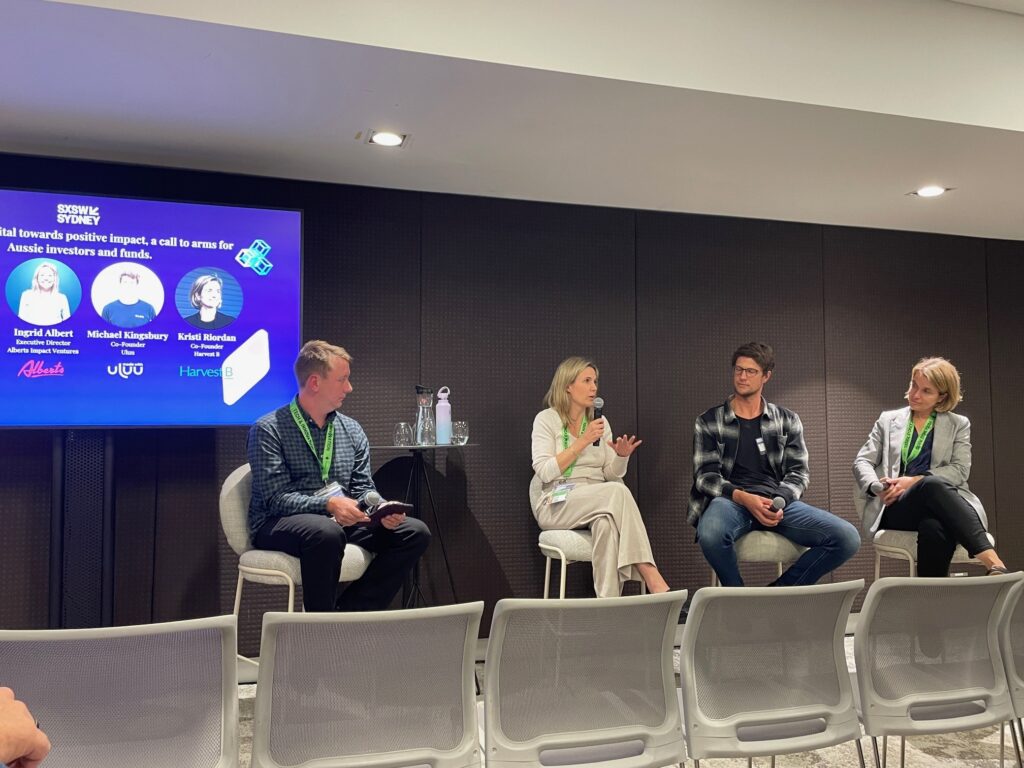
(From left): David Swan, Ingrid Albert, Michael Kingsbury and Kristi Riordan at SXSW Sydney on 15 October.
Joining Michael on stage was Kristi Riordan, CEO and co-founder of Harvest B, a food-tech company focused on developing and manufacturing sustainable plant-based proteins. Kristi explains Harvest B’s mission: “We develop and manufacture sustainable proteins, making them more affordable, nutritious, and sustainable.”
Despite the company’s commitment to revolutionising diets and benefiting the planet, attracting investors to hardware-focused businesses remains challenging. “After 15 years in software I know investors love SaaS [software as a service] margins and returns,” Kristi notes, “but it’s different when you’re working in the physical world, which is critical for solving the planet’s issues.”
So, when it comes to investing for positive impact, how do we make the shift? Moderator David Swan, technology editor of the Sydney Morning Herald and The Age, raised this compelling question.
Ingrid emphasised that for Alberts, values alignment with founders is key: “With every business we consider [investing in], the first question is: ‘Do we believe in this founder?’ And the second is, ‘Do we believe in the problem they’re trying to solve and their potential for positive impact?’”
Building on this, Kristi shared her perspective as a founder: “There are three keys: 1: Investors should have a mandate where they’re genuinely looking for solutions to specific problems and truly care about these issues. 2: They should provide patient capital – thorny problems take time. And 3: Having an impact focus grounds us in the mission we set out to accomplish.”
While only 20% of Australian VC investments are currently directed towards impact-driven startups, the panel highlighted the immense opportunities within the impact space. They noted a growing focus on diversity, equity, and inclusion, highlighting initiatives like F4: Flying Fox Female Funders Program, and the recent launch of Equity Clear, aimed at providing transparent reporting for women and gender-diverse entrepreneurs.
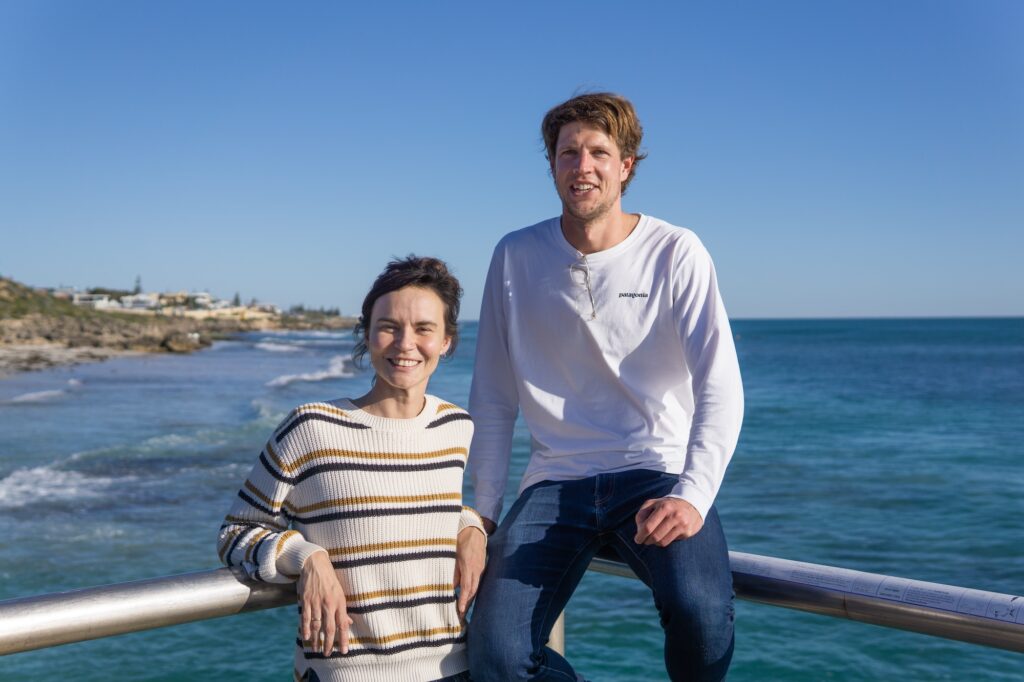
Uluu co-founders Dr Julia Reisser and Michael Kingsbury are on a mission to replace the world’s plastic.
Ingrid elaborated on Alberts’ investment strategy, stating, “Climate is a huge opportunity, making up 45-50% of our portfolio. We saw a surge in VC in 2021, then a downturn – but climate VC remains strong.” Michael acknowledged the need to balance financial returns with long-term sustainability: “There’s still a short-term revenue focus, which can sometimes shift attention away from long-term sustainability,” he noted. “It’s not a short process, and some investors are more amenable. It’s about finding the right ones.”
Kristi underscored this potential by highlighting the increasing government interest in sustainable investments via Sovereign Wealth Funds, signalling a compelling opportunity for investors to align with initiatives that can drive both financial returns and meaningful impact.
“I’m seeing a lot of sovereign capital coming forward in South-East Asia, where the climate crisis is becoming real,” she observed, noting Harvest B is working on one such project to address the hunger crisis affecting 30.8% of children under the age of five in Indonesia who are still affected by malnutrition. “It’s not necessarily about altruism; countries are prioritising how to feed their populations during the next crisis, and they’re looking for investments that can solve these issues.”
Kristi also noted that although the current market lacks robust consumer demand for sustainability, this is likely to change: “Each year brings more volatile weather events, and the pain from that will shift consumer behaviour and market movements,” she said. “Investors will then see opportunities to make money from those shifts.”
This evolving landscape underscores the pivotal role that family offices and impact investors can play in driving impact investment, especially where institutional investors may hesitate.
“Family offices can often be the ones to come in early, take the risk, and put capital in where institutional investors aren’t yet able to,” Ingrid explained.
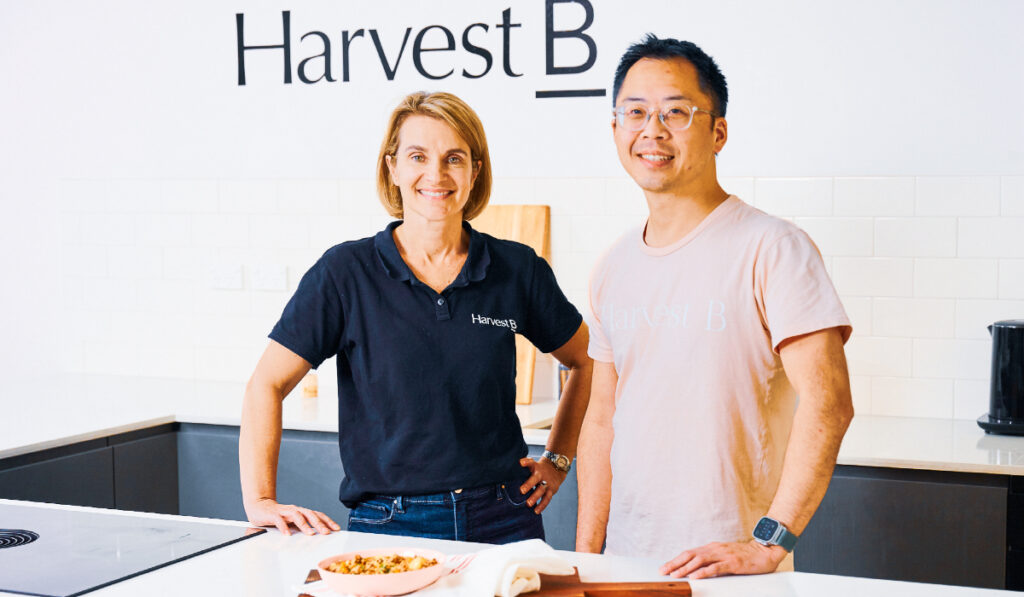
Harvest B Co-Founders Kirsti Riordan and Alfred Lo are revolutionising diets and reducing emissions with delicious plant-based protein alternatives.
In addition, this proactive approach reflects a broader generational shift in the venture capital space, with younger investors increasingly focused on impact. “We’ve seen data showing that Gen Z is leading a major wealth transfer through VCs, and their values reflect that,” said Ingrid. “Structurally, VCs need the right people around boards and committees – people who are passionate about the work companies are doing.”
As Kristy noted, “Impact gets the story over the line.”
